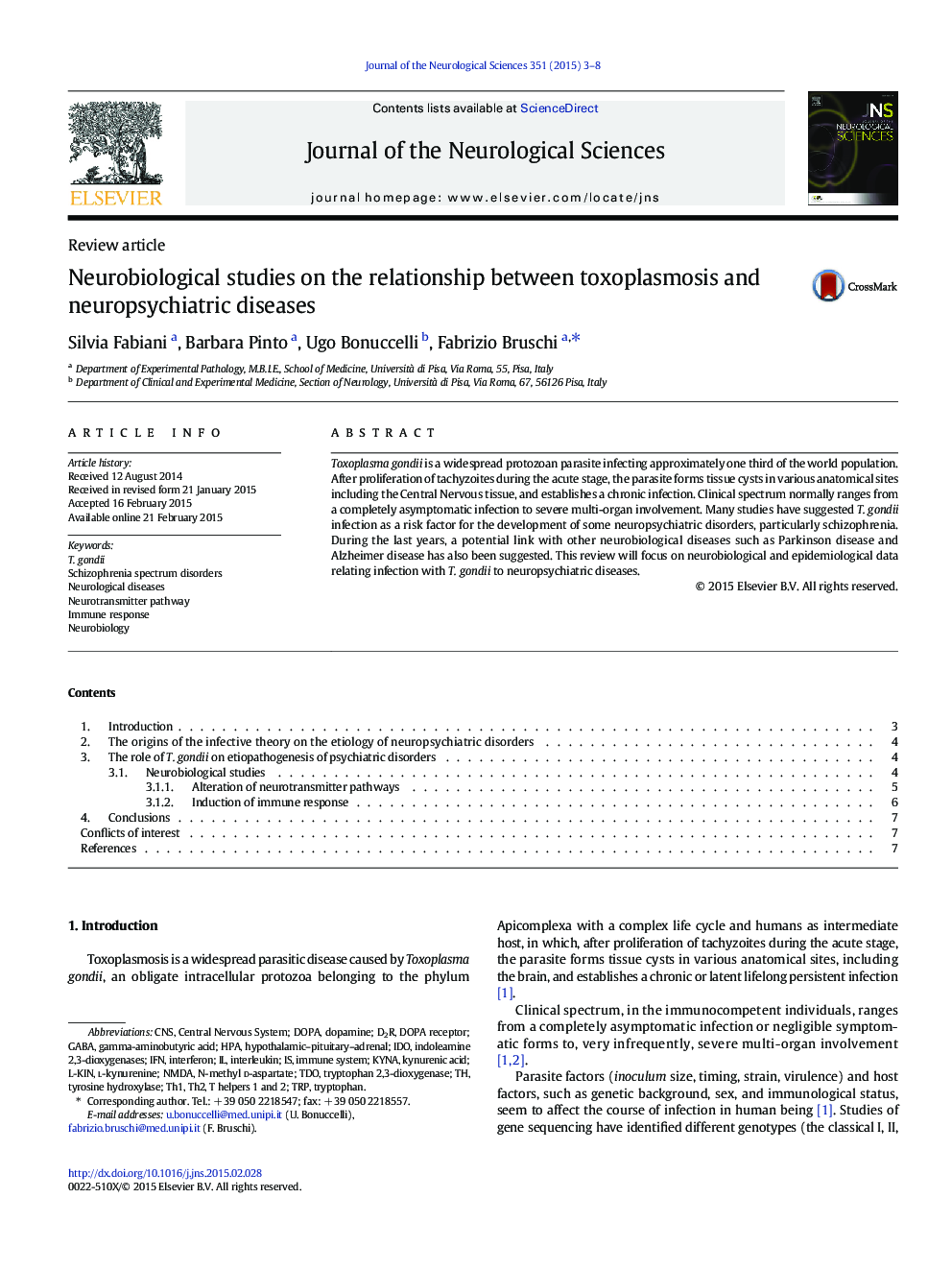| کد مقاله | کد نشریه | سال انتشار | مقاله انگلیسی | نسخه تمام متن |
|---|---|---|---|---|
| 1913242 | 1535111 | 2015 | 6 صفحه PDF | دانلود رایگان |
• The role of T. gondii on the etiopathogenesis of psychiatric disorders
• The alteration of neurotransmitter pathways induced by the parasite
• Immunological mechanisms induced by Toxoplasma at the CNS level
Toxoplasma gondii is a widespread protozoan parasite infecting approximately one third of the world population. After proliferation of tachyzoites during the acute stage, the parasite forms tissue cysts in various anatomical sites including the Central Nervous tissue, and establishes a chronic infection. Clinical spectrum normally ranges from a completely asymptomatic infection to severe multi-organ involvement. Many studies have suggested T. gondii infection as a risk factor for the development of some neuropsychiatric disorders, particularly schizophrenia. During the last years, a potential link with other neurobiological diseases such as Parkinson disease and Alzheimer disease has also been suggested. This review will focus on neurobiological and epidemiological data relating infection with T. gondii to neuropsychiatric diseases.
Figure optionsDownload high-quality image (122 K)Download as PowerPoint slide
Journal: Journal of the Neurological Sciences - Volume 351, Issues 1–2, 15 April 2015, Pages 3–8
